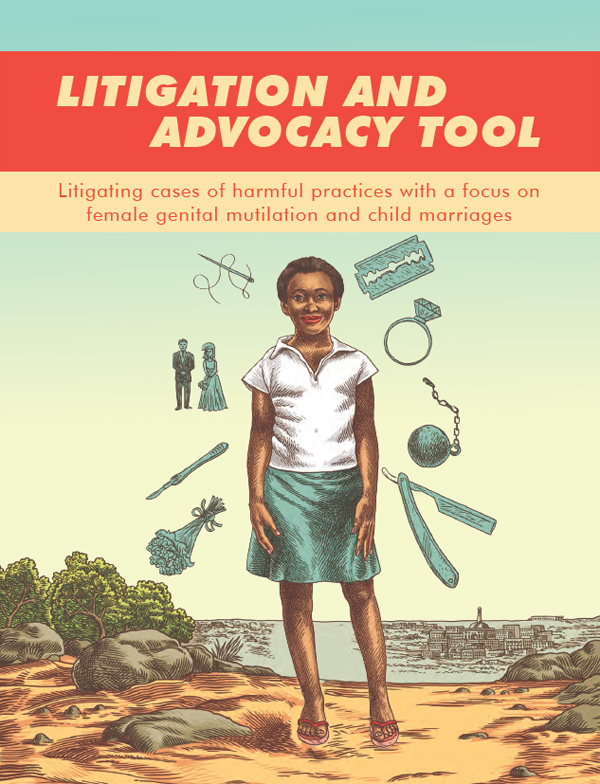The Centre for Human Rights, University of Pretoria and Equality Now, in collaboration with the Solidarity for African Women’s Rights Coalition developed a tool on harmful practices: Litigation and Advocacy Tool: Litigating cases of harmful practices with a focus on female genital mutilation and child marriages.
The tool is also available in French: Manuel relatif aux droits de la défense dans le cadre d'un contentieux: Guider les litiges et plaidoiries qui se focalisent sur mettre fin aux pratiques nocives en Afrique, l’accent étant mis sur la mutilation génitale féminine et le mariage d’enfants.
Both of these tools are available to download and distribute free of charge.
![]() Download this tool (English)
Download this tool (English)
![]() Download this tool (Francais)
Download this tool (Francais)
This tool is intended to guide litigation and advocacy aimed at ending harmful practices in Africa.
The manual is focused on two harmful practices in particular: child marriage and female genital mutilation (FGM), both of which are practiced extensively in Africa and which have especially harmful and long term effects. The manual is focused on child marriage and FGM in West and Southern Africa although our hope is that it will also be used to inform advocacy and litigation aimed at ending other harmful practices in countries outside of West and Southern Africa.
The manual aims to:
- provide a situational analysis of FGM and child marriage, particularly in West and Southern Africa;
- assess the legal and policy frameworks adopted to curb harmful practices;
- help lawyers identify opportunities for strategic litigation and build cases around harmful practices; and
- help lawyers identify advocacy opportunities at both the national and regional level to ensure protection against harmful practices.
In this manual, we have used the term ‘harmful practices’ deliberately instead of terms that designate harmful practices as religious, social, cultural or traditional. This is consistent with terminology in the Maputo Protocol1 and acknowledges not only that some harmful practices are neither cultural nor religious but also that positive cultural contexts should be promoted.
The degree of harm associated with FGM and child marriage and the alarming prevalence of both practices justifies an acceleration of national, regional and international efforts to bring them to an end. We hope this manual will be used to scale up and support ongoing advocacy and litigation interventions at both the regional and national level to curb the practices and ameliorate their effects.


